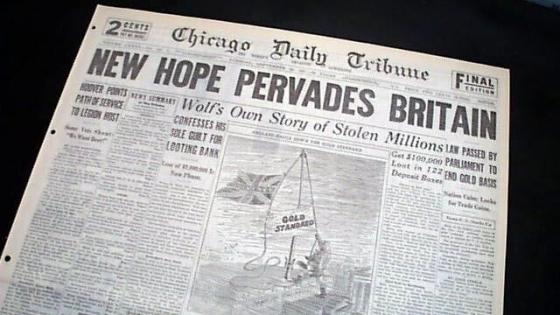DP1898 Currency Crisis and Unemployment: Sterling in 1931
This paper studies the role of unemployment in sterling?s inter-war experience. According to most narrative accounts, the proximate cause of the 1931 sterling crisis was a high and rising unemployment rate that placed pressure on British governments to pursue reflationary policies. We present a model which, in the spirit of the ?second generation? approach to currency crises, highlights the conflict between the objective of low unemployment and defence of the currency and show that it can reproduce the main features of sterling?s inter-war experience. Econometric evidence lends further support to the view that the proximate cause of the sterling crisis was the dramatic rise in unemployment caused by external deflationary forces.


